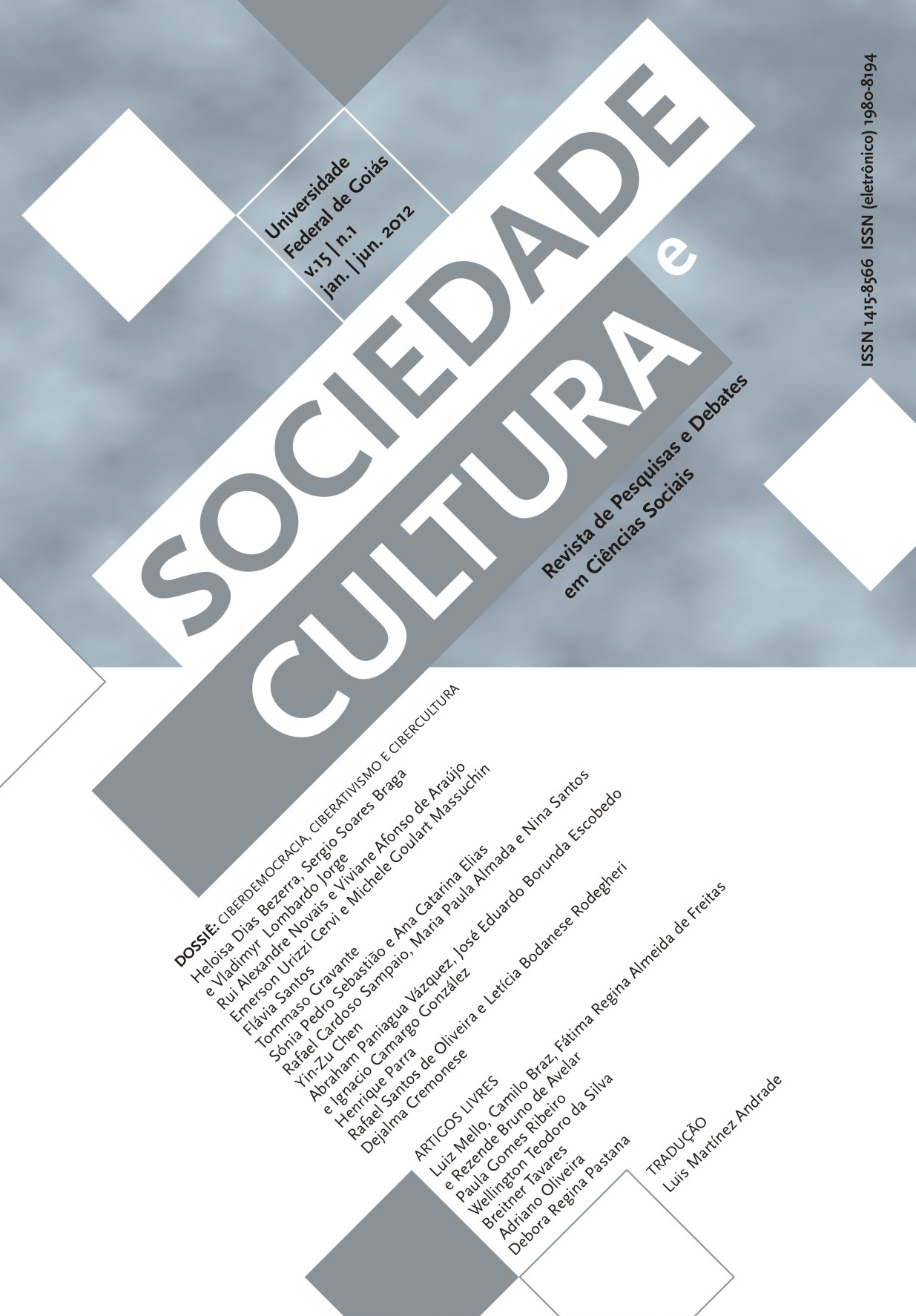O shopping center como figura paradigmática do discurso colonial: racismo e poder na América Latina
DOI:
https://doi.org/10.5216/sec.v15i1.20686Keywords:
consumação, capitalismo, neocolonialismo cultural, shopping center.Abstract
Este texto tem o objetivo de mostrar a relação entre a lógica do capital e o processo de neocolonialismo na América Latina. No alvorecer da modernidade (século XVI),assistiu-se à criação de mitos e de modelos que determinaram “a maneira de fazer e de agir” das sociedades periféricas. As ideias de progresso e de desenvolvimento legitimaram a presença e a dominação política, cultural, econômica e, até mesmo, militar de um poder colonial sobre o outro. Neste sentido, a fim de esclarecer a maneira como alguns objetos discursivos da narrativa moderna participam do imaginário da sociedade, nosso trabalho procura analisar o papel do centro comercial ou shopping center. O centro comercial tornou-se não somente a “catedral da marca” ou a “meca da mercadoria”, mas também o lugar no qual é possível observar todas as contradiçõesdo capitalismo tardio.Downloads
Download data is not yet available.
Downloads
Published
2012-10-17
How to Cite
ANDRADE, Luis Martínez. O shopping center como figura paradigmática do discurso colonial: racismo e poder na América Latina. Sociedade e Cultura, Goiânia, v. 15, n. 1, 2012. DOI: 10.5216/sec.v15i1.20686. Disponível em: https://revistas.ufg.br/fcs/article/view/20686. Acesso em: 3 mar. 2026.
Issue
Section
Tradução
License
Authors who publish in this journal agree to the following terms:
- Authors retain the copyright and grant the journal the right of first publication, the work being simultaneously licensed under the Creative Commons Attribution License, which allows the sharing of the work with acknowledgment of authorship and of the initial publication in this journal;
- Authors are authorized to enter into additional contracts separately, for non-exclusive distribution of the version of the work published in this journal (eg, publishing in an institutional repository or as a book chapter), with acknowledgment of authorship and of the initial publication in this journal;
- Authors are allowed and encouraged to post and distribute their work online (eg, in institutional repositories or on their personal page) at any point before or during the editorial process, as this can bring productive change as well as increases the impact and the citation of the published work (see O Efeito do Acesso Livre).



